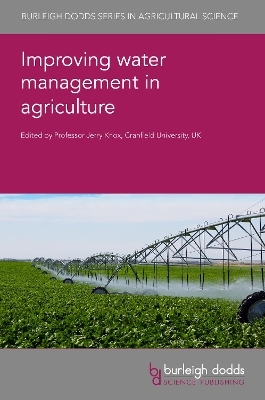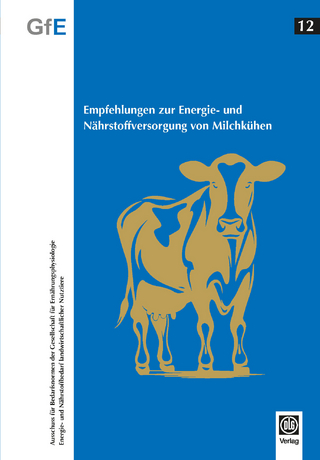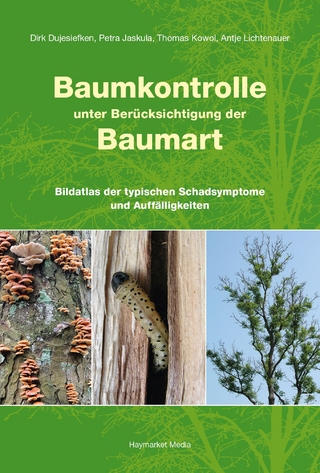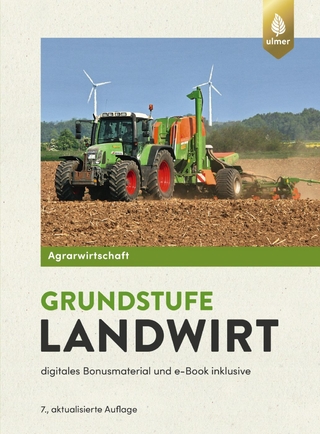
Improving Water Management in Agriculture
Burleigh Dodds Science Publishing Limited (Verlag)
978-1-80146-274-7 (ISBN)
Irrigated agriculture accounts for around 70% of global water use. However, an estimated 60% of irrigated cropland remains highly water-stressed, a problem intensified by the effects of climate change.
Improving water management in agriculture considers ways of addressing this challenge. It reviews advances in monitoring and optimizing irrigation efficiency, ways of retaining and re-using water resources as well as how farmers can work collaboratively with other stakeholders to manage watersheds more sustainably.
The book highlights key areas where innovation is required to ensure that water use is optimised at farm and watershed scales. The book encourages farmers to reassess their current irrigation models and implement alternative practices which improve efficiency with a reduced environmental impact.
Dr Jerry Knox is Professor of Agricultural Water Management based within the Water Science Institute at Cranfield University, UK. Professor Knox has an international reputation for his research on the science, engineering and management of water for agriculture, including assessing the relationships between water resources, drought, crop productivity and the environment, and the sustainability of irrigated production in the context of climate impacts and food security. His current research addressing water and climate risks is focussed in sub-Saharan Africa and Latin America. He is Editor of Outlook on Agriculture and Associate Editor for Irrigation Science. Dr Jerry Knox is Professor of Agricultural Water Management based within the Water Science Institute at Cranfield University, UK. Professor Knox has an international reputation for his research on the science, engineering and management of water for agriculture, including assessing the relationships between water resources, drought, crop productivity and the environment, and the sustainability of irrigated production in the context of climate impacts and food security. His current research addressing water and climate risks is focussed in sub-Saharan Africa and Latin America. He is Editor of Outlook on Agriculture and Associate Editor for Irrigation Science. Stephen H. Anderson is the William A. Albrecht Distinguished Professor of Soil and Environmental Sciences in the School of Natural Resources at the University of Missouri, USA. His current areas of research include evaluating soil management effects on soil hydraulic properties, developing X-ray computed tomography and microtomography techniques to assess pore-scale soil properties and processes, and utilizing hydrologic models to evaluate effectiveness of conservation practices at the watershed scale. Henk Ritzema is a former Associate Professor at the Water Resources Management Chair Group of Wageningen University. He retired in September 2020. Henk Ritzema has published over 160 articles, books and reports and is a regular invited speaker at international conferences and workshops. Dr Juan Antonio Rodriguez is Professor of Hydraulics and Irrigation Engineering at the University of Córdoba, Spain. He has more than 20 years worth of experience in research, education and consultancy in the field of hydraulics and irrigation water resources management. He has authored over 100 papers in scientific peer reviewed journals (h index of 23 in JCR and 24 in Scopus) and has participated in 60 research and consultancy projects (project leader in 22).
Part 1 Water for agriculture: externalities, drivers for change and future demands
1.Introduction: improving water management in agriculture: Jerry Knox, Cranfield University, UK;
2.Forecasting future water use in agriculture: Upali Amarasinghe, IWMI, Sri Lanka;
Part 2 Managing water for agriculture: challenges and innovations
3.Advances in irrigation scheduling/decision support systems for irrigation management: Mladen Todorovic, Mediterranean Agronomic Institute of Bari, Italy;
4.Agronomic practices to optimise soil water retention: Stephen Anderson, University of Missouri, USA;
5.Advances in drainage design and management for irrigated agriculture: Henk Ritzema, Wageningen University, The Netherlands;
6.Application of earth observation and remote sensing techniques in agricultural water management: Alfonso Calera Belmonte, University of Castilla-La Mancha, Spain;
Part 3 Implementing innovations in engineering and application technology
7.Managing energy demands in irrigated agriculture: Juan Rodriguez-Diaz, University of Cordoba, Spain;
8.Solar powered irrigation: current developments and future uptake: Muhammed Arif Watto, University of Agriculture - Faisalabad, Pakistan;
Part 4 Securing water resources for agriculture: diversification and collaboration
9.Modelling watersheds to optimise water supplies for agriculture and other uses: Graham Jewitt, IHE Delft Institute for Water Education, The Netherlands;
10.Advances in farmer-led irrigation development in Africa: Philip Woodhouse, University of Manchester, UK;
11.Promoting IWRM and multi-sector collaboration in water management: Steve Moncaster, Consultant, UK;
12.Improving water use in agriculture to reduce environmental impact: the irrigation efficiency paradox: Bruce Lankford, University of East Anglia, UK;
13.Developments in water sharing and water trading to secure supplies for agriculture: Sarah Wheeler, University of Adelaide, Australia;
Part 5 Reducing the environmental impacts of irrigation
14.The role of vegetative and riparian buffers for improving water management: Pippa Chapman, University of Leeds, UK;
15.Developments in the use of wastewater for crop cultivation: Tapas Biswas, CSIRO, Australia;
16.Managing climate change, droughts and water scarcity affecting agriculture: Ray-Shyan Wu, National Central University, Taiwan;
17.Water-energy-food nexus (WEF): Oscar Melo, Pontificia Universidad Católica de Chile, Chile;
| Erscheinungsdatum | 05.06.2024 |
|---|---|
| Reihe/Serie | Burleigh Dodds Series in Agricultural Science ; 138 |
| Zusatzinfo | Color tables, photos and figures |
| Verlagsort | Cambridge |
| Sprache | englisch |
| Maße | 152 x 229 mm |
| Themenwelt | Weitere Fachgebiete ► Land- / Forstwirtschaft / Fischerei |
| ISBN-10 | 1-80146-274-7 / 1801462747 |
| ISBN-13 | 978-1-80146-274-7 / 9781801462747 |
| Zustand | Neuware |
| Informationen gemäß Produktsicherheitsverordnung (GPSR) | |
| Haben Sie eine Frage zum Produkt? |
aus dem Bereich


